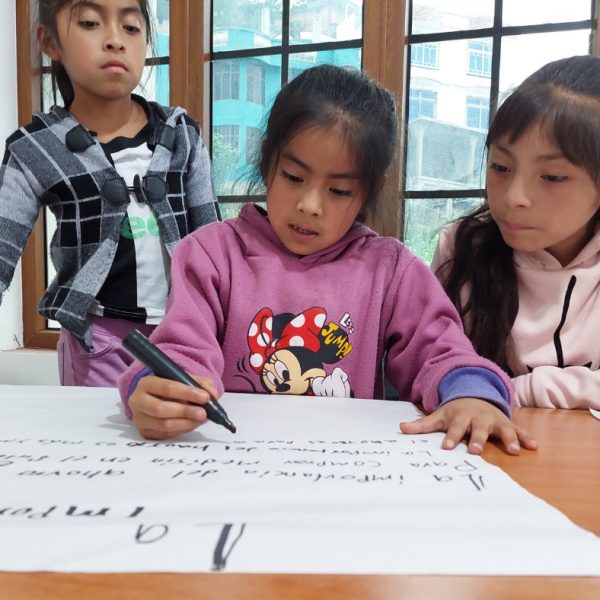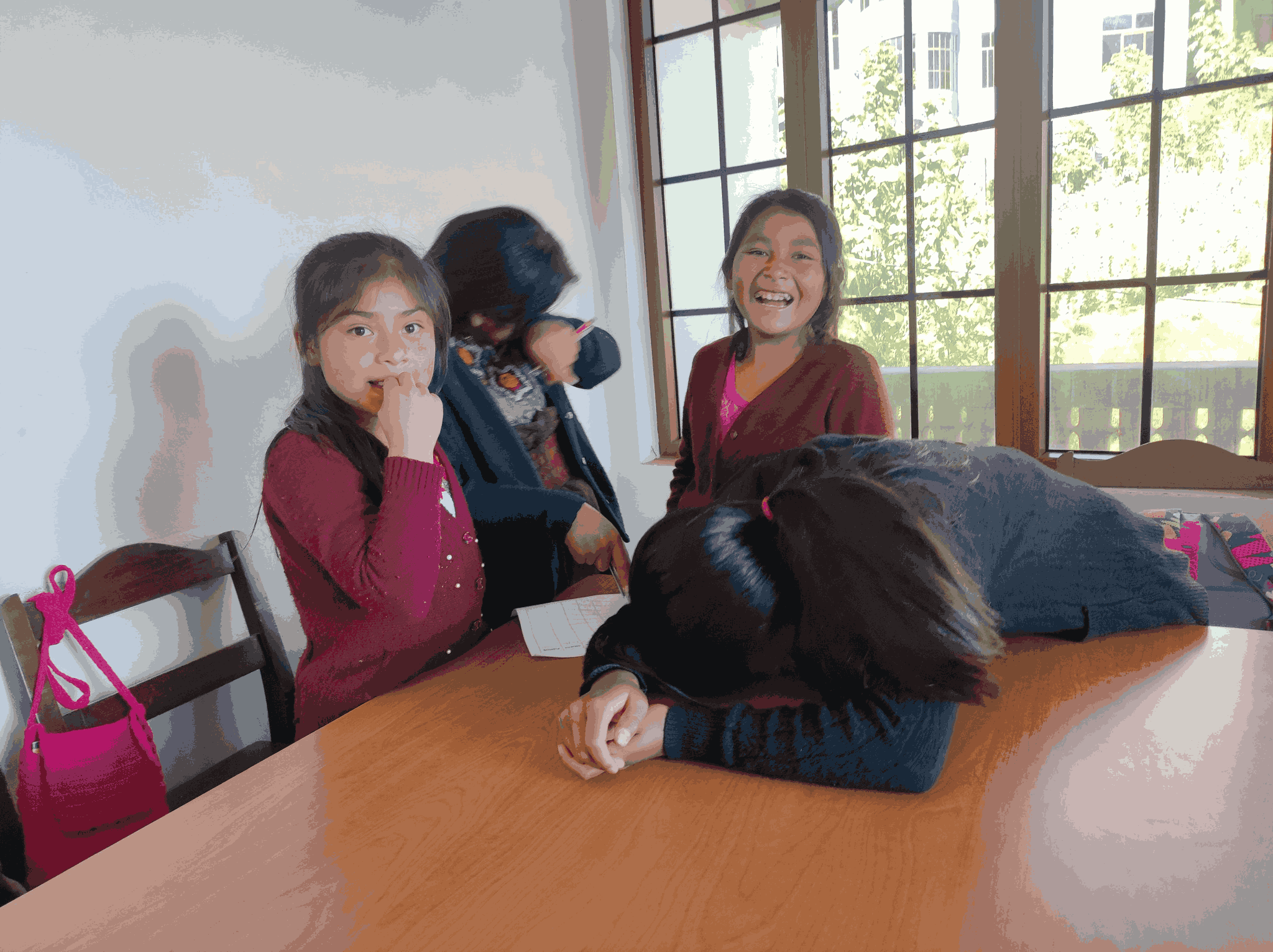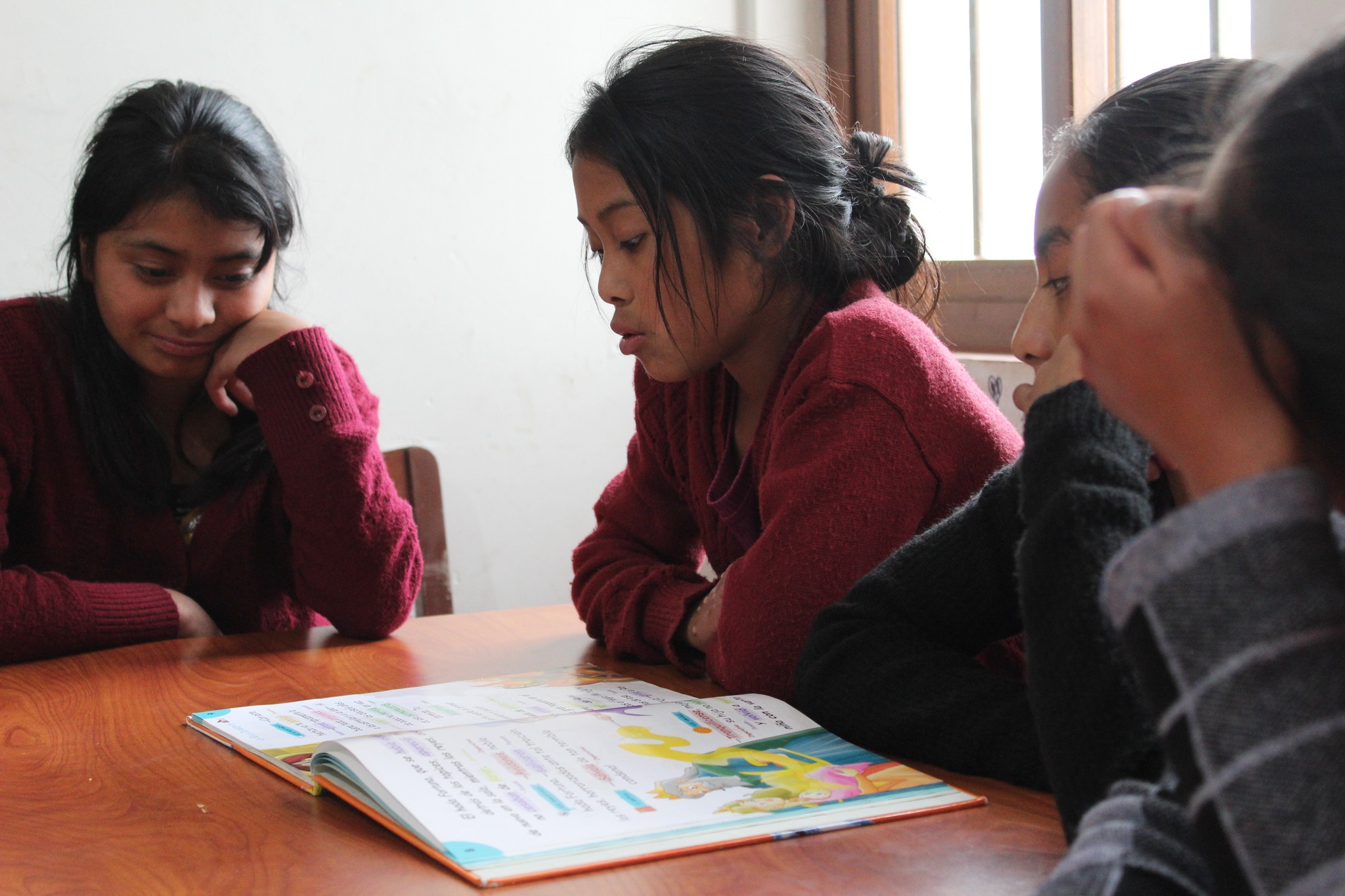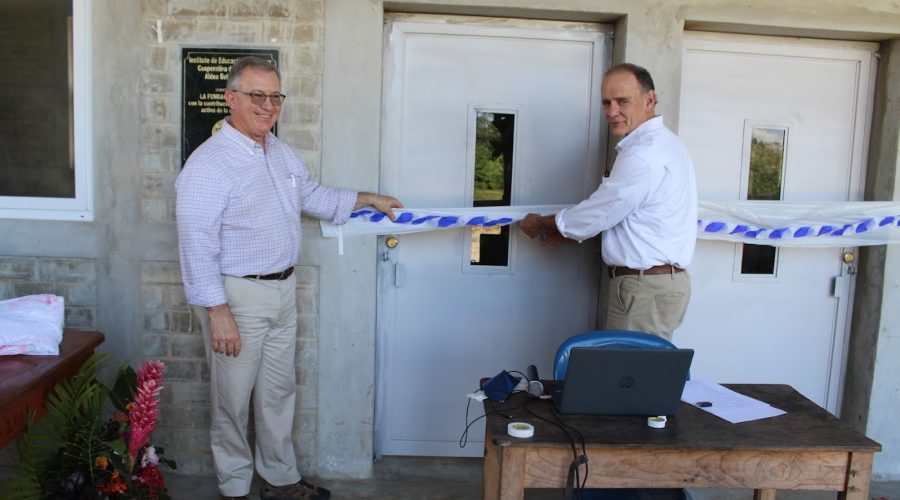
Partnering with area public schools to implement project-based learning initiatives

Development through education
GuateMaya Alliance, formerly known as the Ixtatán Foundation, is a productive Nonprofit Organization founded twenty three years ago, soon after the Guatemala Peace Accords were signed in 1996. The Foundation operates from Guatemala in the department of Huehuetenango and is based in Charlottesville, VA. In 23 years, it has gone from school infrastructure to innovative education models to graduating the town of San Mateo Ixtatán first youth from high school and college.
To support the power and capacity of Guatemalan youth to foster participatory pathways to community well-being.
We dream of thriving communities that have access to quality education, justice, health care and decent employment.
Initially focused on the population of northern Huehuetenango which is primarily of Mayan descent, a demographic group in Guatemala that, despite being more than half the total population, has been systematically discriminated against and excluded from the national education system. Indigenous students must learn in a foreign language (Spanish vs their native Mayan) and in most of the country do not have access to middle or high schools so that many only achieve 3rd or 6th grade in their communities. Lack of education opportunities is a key reason why Mayan youth make the excruciating decision to travel undocumented to the U.S. in search of better opportunities for themselves and their families. GuateMaya Alliance focuses on these indigenous people in rural communities in the Western Highlands of Guatemala.
Supporting students, Creating Leadership & Critical Thinking, and Community well-being.

Project-Based Learning Curriculum Development

College Scholarship Program

Public Library
Thanks to a matching grant the first three classrooms of the Centro Uno School, in Guatemala are funded
Support the power and capacity of Guatemalans

Make a gift online

Make a 3-year pledge of an annual gift

Give through a DAF, Donate Stock or Plan for a Legacy Gift
Discover Frequently Asked Questions
Yes. The Ixtatan Foundation, Inc DBA GuateMaya Alliance is a registered nonprofit organization registered with the IRS as a (501(c)3 EIN 54-2020657 in the U.S. As well as a registered nonprofit organization in Guatemala with NIT: 79110509
You can mail a check to GuateMaya Alliance at P. O. Box 1076. Charlottesville, VA 22902
There are many volunteer opportunities in Guatemala, please contact our office in Huehuetenango at: +502 78828487 or at [email protected]
The Ixtatan Foundation was founded by Beth Neville Evans and the current president is Kelly Eplee
Contact us at [email protected] for general information. For gifts and planned giving contact [email protected] or text GIVE at (855)874-0607, and to contact the Guatemala office email [email protected]
The Guatemala office is located at 7a Avenida B 1-10 Zona 4, Ciudad de Huehuetenango, Huehuetenango, Guatemala.
Yes. We are happy to share information about Guatemala, education and development opportunities at your organization or church. Please reach out at [email protected].
![[EN] GuateMaya Alliance](https://en.guatemayalliance.org/wp-content/uploads/sites/7/2024/08/cropped-Logo-Oficial-Fundacion-Ixtatan-240806-2.png)
